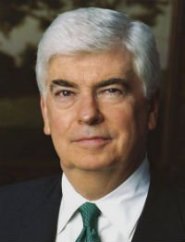 It’s hard to tell whether Apple is simply trolling Spotify with its pitch to the Copyright Royalty Board to adopt a fixed, per-use royalty rate for songwriting rights on streaming services in place or the current revenue-based formula, or whether it’s a serious proposal. But if it’s the latter, the CRB should at least consider the source before adopting it.
It’s hard to tell whether Apple is simply trolling Spotify with its pitch to the Copyright Royalty Board to adopt a fixed, per-use royalty rate for songwriting rights on streaming services in place or the current revenue-based formula, or whether it’s a serious proposal. But if it’s the latter, the CRB should at least consider the source before adopting it.
Rights
Wagging Music Publishing’s Long Tail
 Last week’s announcement that the U.S. Copyright Office had successfully accepted a bulk submission of notices of intent (NOIs) for compulsory mechanical licenses in electronic form marked a major milestone, both for the Office and for Music Reports Inc., which delivered the NOIs on behalf of music streaming service Guvera.
Last week’s announcement that the U.S. Copyright Office had successfully accepted a bulk submission of notices of intent (NOIs) for compulsory mechanical licenses in electronic form marked a major milestone, both for the Office and for Music Reports Inc., which delivered the NOIs on behalf of music streaming service Guvera.
Music Reports has been working with the Copyright Office for more than a decade as part of the Office’s fitful, and at times halfhearted, effort to upgrade the creaky, pre-digital process for submitting and accessing music publishing information to at least 20th century standards if not quite 21st. Last week’s successful test run on the Office’s new, electronic submission system, involving about 100 tracks, is believed to be the first such hand-off.
“We’re now ready to start doing this at scale. It’s a big, big step,” Music Report’s VP and general counsel Bill Colitre told RightsTech.com.
But it was only one step toward solving what Colitre says is a much bigger problem: the vast and fast-growing amount of music being released on digital platforms today for which publishing information is not available, if it was ever collected in the first place.
Google Partners With LyricFind To Deliver More Lyrics In Search, Administer Rights
 Google Search and Google Play Music are diving more deeply into song lyrics via a deal with LyricFind. Lyrics as an add-on have been getting attention lately. Apple Music is adding them. Spotify offered lyrics and recently dropped them, but insists their coming back.
Google Search and Google Play Music are diving more deeply into song lyrics via a deal with LyricFind. Lyrics as an add-on have been getting attention lately. Apple Music is adding them. Spotify offered lyrics and recently dropped them, but insists their coming back.
Google has partnered with LyricFind to expand its lyric offerings. Adding lyrics from over 4,000 publishers to Google’s search results and within Google Play Music, LyricFind now provides licensing for lyrics displayed in Google’s search results as well as in the music app.
Source: Google Partners With LyricFind To Deliver More Lyrics In Search, Administer Rights – hypebot
MPAA Boss: Europe’s Geo Unblocking Plans Threaten Movie Industry
 In a keynote address at the CineEurope convention this week, MPAA Chairman and CEO Chris Dodd described the unblocking goals as a threat to the movie industry. Encouraging participants to reach out to their representatives, Dodd described the concerns as “real, very real.”
In a keynote address at the CineEurope convention this week, MPAA Chairman and CEO Chris Dodd described the unblocking goals as a threat to the movie industry. Encouraging participants to reach out to their representatives, Dodd described the concerns as “real, very real.”
“While the stated goals of these proposals are laudable – offering greater choice to European consumers and strengthening cultural diversity – in reality, these ideas could actually cause great harm to Europe’s film industries and its consumers,” Dodd said. “What particularly concern me are proposals that would threaten the practices of territorial licensing and contractual freedom. These practices have long served as the financial bedrock of Europe’s film industries.”
Source: MPAA Boss: Europe’s Geo Unblocking Plans Threaten Movie Industry – TorrentFreak
Sustainability And The Future Of Music
It should now be abundantly clear that the data identifying recorded music and its split ownership rights is a key component linking the money flow between Great Music and Engaged Fans. Without clean data, no one knows who created what, how to license what from whom, who to pay, or how much. The messiness of music rights data is our industry’s “hair shirt” and I’m not sure how much longer we can collectively stand to wear it.
Now that there is consensus that streaming is here to stay, it should also follow that systems need shoring up. This particular problem is best solved from within the industry itself or at least by companies who view labels, publishers and artists as their customers rather than the DSPs – a fundamental requirement for business alignment in who is working for whom.
NCTA Pitches ‘Ditch the Box’ Set-Top Proposal
 The National Cable & Telecommunications Association and other parties opposed to the FCC’s “unlock the box” set-top proposal are pitching a compromise “ditch the box” (#ditchthebox) alternative they say “combines enforceable obligations and open standards, which are centerpieces of the FCC’s Notice of Proposed Rulemaking, with the market-driven apps solutions preferred by critics of the FCC’s proposed mandate.”
The National Cable & Telecommunications Association and other parties opposed to the FCC’s “unlock the box” set-top proposal are pitching a compromise “ditch the box” (#ditchthebox) alternative they say “combines enforceable obligations and open standards, which are centerpieces of the FCC’s Notice of Proposed Rulemaking, with the market-driven apps solutions preferred by critics of the FCC’s proposed mandate.”
They said after talks with ISPS about how to achieve the FCC end of a competitive market, they hit on an alternative based on enforcing an industry-wide commitment–“binding, enforceable obligations” to “develop and deploy video ‘apps’ that all large MVPDs would build to open HTML5 web standards,” which they say would benefit consumers and commercial rights.
Source: NCTA Pitches ‘Ditch the Box’ Set-Top Proposal | Multichannel
In Open Music Initiative, a Possible Rights-Tech Blueprint
 With this week’s announcement of the Open Music Initiative (OMI), the music industry is once again embarking on an effort to solve a problem that has long-vexed the business, but particularly since the rise of streaming services: the lack of a shared, secure and trusted way of knowing who owns what and what they’re owed for the use of their music.
With this week’s announcement of the Open Music Initiative (OMI), the music industry is once again embarking on an effort to solve a problem that has long-vexed the business, but particularly since the rise of streaming services: the lack of a shared, secure and trusted way of knowing who owns what and what they’re owed for the use of their music.
Spearheaded by the Berklee College of Music’s Institute for Creative Entrepreneurship (BerkleeICE), along with the MIT Media Lab, brings together a wide range of music industry stakeholders, including the major record companies, music publishers, streaming services, rights organizations, artists representatives and technology developers, among others, to develop a technical framework for data exchange that will enable interoperability of systems and services throughout the music rights ecosystem.
“It’s not a secret that the infrastructure of the music industry, especially the one around creative rights, has not evolved to accommodate for the ways that music is being created and consumed today,” BerkleeICE founding managing director Panos Panay said in a statement. “We want to use the brainpower, neutrality and convening ability of our collective academic institutions, along with broad industry collaboration, to create a shared digital architecture for the modern music business. We believe an open sourced platform around creative rights can yield an innovation dividend for creators and rights holders alike.”
Another key objective of OMI is to avoid the mistakes and pitfalls that have sank previous industry efforts to establish a standardized rights-management infrastructure, such as the Secure Digital Music Initiative (SDMI) and the Global Repertoire Database (GRD).
“There are a couple of words that a verboten around here,” Context Labs CEO and Berklee Trustee Dan Harple told RightsTech.com. “One of them is ‘database.’ We are not building a database. A ledger is not a database. There may be databases that interoperate with OMI, but we’re not building a database.”
Canadian Performance Rights Org SOCAN Collects $307.8 Million
 The Society of Composers, Authors and Music Publishers of Canada (SOCAN) has topped $300 million (CAD) in total revenues from its membership for the first time since forming in 1990 after a merger between two PROs, CAPAC and PROCAN.
The Society of Composers, Authors and Music Publishers of Canada (SOCAN) has topped $300 million (CAD) in total revenues from its membership for the first time since forming in 1990 after a merger between two PROs, CAPAC and PROCAN.
The performance rights organization collected CAD $307.8 million ($240.04 USD) in domestic and international royalties for the fiscal year ending Dec. 31, 2015, from the performance of music from more than 135,000 songwriters, composers and music publisher members. (A preliminary financial report released in January put the figure at $310 million).
Source: Canadian Performance Rights Org SOCAN Collects $307.8 Million | Billboard
Digital Music Era Ushers In New Rights for Veteran Studio Musicians
 Paul Harrington, a leading session player on harmonica based in Rockwall, Texas, today announced that after a lengthy quest he has received digital session royalties for the Pitbull track, “Timber,” featuring Ke$ha.
Paul Harrington, a leading session player on harmonica based in Rockwall, Texas, today announced that after a lengthy quest he has received digital session royalties for the Pitbull track, “Timber,” featuring Ke$ha.
Mr. Harrington was hired in 2013 to record the song’s signature harmonica riff, which kicks off the song and weaves through the entire tune. While he was compensated a meager amount for his time, Mr. Harrington, as with many session players, did not realize that there was money left on the table – a little known royalty owed to session musicians for digital airplay.
Source: Digital Music Era Ushers In New Rights for Veteran Studio Musicians | Business Wire
Pandora looks to avoid Spotify’s royalty lawsuits with Music Reports deal
Pandora , under new CEO Tim Westergren, has announced a new partnership with Music Reports, which it calls “the world’s most advanced rights administration platform”, to manage the mechanical licensing and royalty administration for its upcoming on-demand streaming service.
, under new CEO Tim Westergren, has announced a new partnership with Music Reports, which it calls “the world’s most advanced rights administration platform”, to manage the mechanical licensing and royalty administration for its upcoming on-demand streaming service.
Spotify was hit by two $150m+ class action lawsuits last year over missing or inaccurate mechanical royalty payments to songwriters – since combined, and ongoing – and later offered a settlement to writers via the NMPA.
Source: Pandora looks to avoid Spotify’s royalty lawsuits with Music Reports deal – Music Business Worldwide
